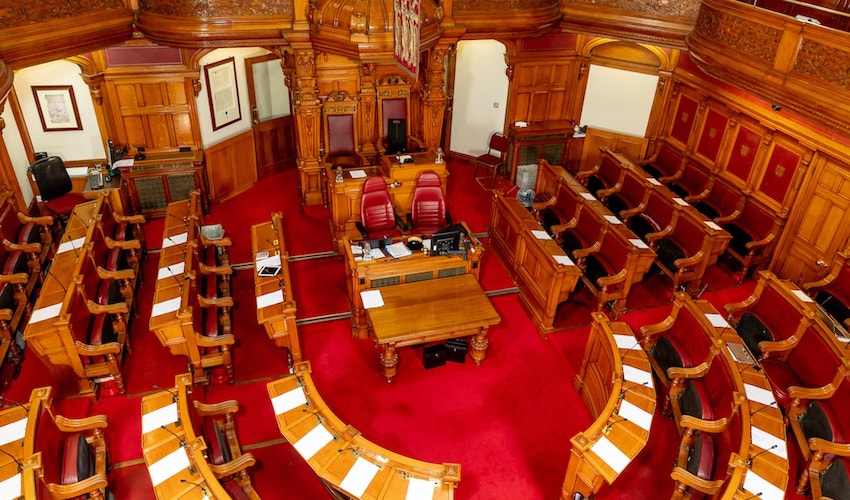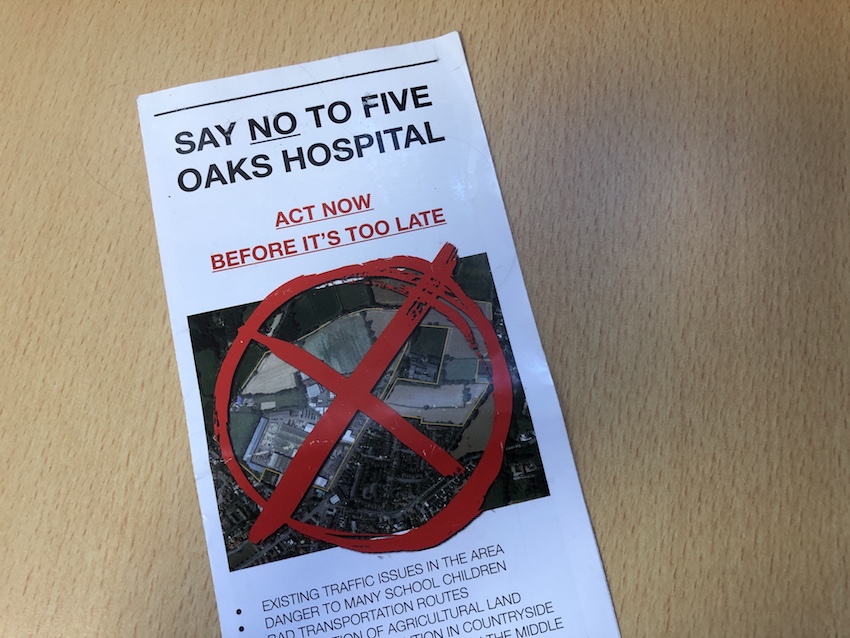


Are e-petitions a force for real change, with ideas initiated by the people? Or are they simply a democratic façade? Express examines...
A recent petition has been launched with the aim of changing the way in which the online petition process is currently run, and has raised questions about the efficiency of the initiative as a whole.
The petition, which is asking that the threshold required by petitions to receive a response or debate be lowered, is the latest in a series of criticisms that have been levelled at the online petition process.
The system, which was originally introduced by Deputy Scott Wickenden in order to give islanders more of a say in the way the island is run, has come under fire for a number of reasons past few months which illuminate the potential problems that the system still faces almost two years after its inception.
First proposed in 2017, the online petition system was intended to modernise and simplify the traditional paper petition and allow islanders to lodge their ideas in a more accessible way. It was decided that once a petition reached a total of 1,000 signatures, it would require a response from the appropriate Minister, before later being considered for debate by the States Assembly once it reached the necessary 5,000 signatures.

Pictured: e-petitions with 5,000 signatures are considered for debate by the States Assembly.
Since the online petition process was introduced in 2018, questions have been raised about the way it is run, monitored and responded to.
Recently, a petition was launched which aimed to lower the current thresholds required to generate action, arguing that the present targets of 1,000 and 5,000 signatures were too high. Highlighting the discrepancies between the population percentage that is required in Jersey for petitions to garner a response in comparison to the UK counterparts, the author claims that local petitions need on average 31 times more signatures to receive a Ministerial response than those in the UK.
Such figures might serve to explain the difficulties that online petitions have faced in creating the attention required to have them considered by the States Assembly.
Of the 244 petitions which have been registered since the initiative began, almost half (113) did not reach the lower 1,000 signature threshold to require a response from the a Minister, and only six have been considered for debate by the States Assembly.
These statistics suggest that the likelihood of a petition generating enough support to receive a response, in either form, is relatively low, bringing into question the expediency of the petition system as a whole.
Total petitions to date: 244
Petitions rejected: 49
Closed petitions (petitions that did not reach threshold): 113
Ministerial responses: 40
Petitions debated: 4
Petitions rejected for debate: 2
However, the petition to reduce the number of signatures required to receive a response or debate only reveals the surface of the issues that islanders raised in regards to the initiative, with some questioning whether even the most popular of petitions are influential enough.
Recently, a petition asking for the Five Oaks site to be removed from the hospital site shortlist was said by one Government spokesperson to hold no bearing over the final decision about the site. The comment generated significant concerns amongst State Members and the community about the impact that the petitions can actually have.
Deputy Perchard, who is a representative for St. Saviour No. 3, was quick to express her dismay at the comment.
Petitions are a way for th public to influence policy. No Gov spokesperson has th authority or power to say petitions won’t be considered. I’m astounded Gov Comms let this quote out! No civ. servant has th right to stop petitions having influence; this wd be totally undemocratic. https://t.co/ObvNLcOvx5
— JessPerchard (@JessePerchard) August 26, 2020
Although the petition is no longer necessary, as the Government recently released the shortlist of hospital sites which contained only two locations, People's Park and Overdale, the concern generated by the response to the parishioner's petition has not subsided.
Speaking to Express, Deputy Perchard said that she was "still in shock" at the statement, and emphasised that all petitions should have bearing, whether or not they later receive a Ministerial or State response or not.
"The comment represents a wider structural problem within our government," she said. "The sentiment expressed by this spokesperson demonstrates an opinion which will only cause greater dissatisfaction in the public in the years to come, something that we as a government should be actively trying to avoid."

Pictured: A petition launched to remove Five Oaks from the list of potential hospital sites was said to have no bearing on the States' decision.
Deputy Perchard stated that, even if petitions do receive the necessary signatures, there is still a strong public feeling that these petitions are simply ignored.
"There is currently no 'action arising' requirement attached to the petition process, which would require the Minister or the Assembly to outline the action that had been taken as a result of the petition for the creator and the signees to see. For the most part, people feel that they receive a Ministerial response or a debate but then the issue is rarely further progressed."
Children and Housing Minister Senator Sam Mézec believes that the issues highlighted with the online petition system largely stem from the speed with which the initiative was rolled out.
In response to one Twitter user who complained about the ability of 'anonymous' authors to create and sign petitions, the Senator expressed that he had conveyed these concerns at the time but they had been rejected by his colleagues.
When the petitions system was first proposed, I brought forward a series of amendments to safeguard against this sort of thing happening. But, alas, they were rejected in favour of expediency instead. Personally, I think this innovation has push politicians away from the public.
— Senator Sam Mézec (@SamMezecJsy) September 2, 2020
The issues associated with the current verification system, which allows the public to post petitions with little to no detail, research or supporting arguments, could have been prevented, Senator Mezec said, if the scheme had been developed in conjunction with the Digital ID scheme, which would strengthen the security process required to create a petition.
Due to the rush to unveil the scheme, he says "the whole system now requires an overhaul."
"Whether or not the Digital ID system will be incorporated into the e-petition system is unclear, but the current system as a whole is an ineffectual way for the public to lodge concerns or ideas with the States.
"The current petition system encourages islanders to register petitions as an easy form of action, when in fact it often does not enact change."
Pictured: Senator Mézec believes that the current online petition system requires an 'overhaul'.
He continued: "The States often ignores the petitions, and the system diverts attention away from other forms of campaigning such as the Parish system, which only requires ten signatures to effect a debate and is in fact a much more effective way of allowing the public's thoughts to be heard."
There are, however, currently no plans to adapt the e-petition system as it stands.
Comments
Comments on this story express the views of the commentator only, not Bailiwick Publishing. We are unable to guarantee the accuracy of any of those comments.